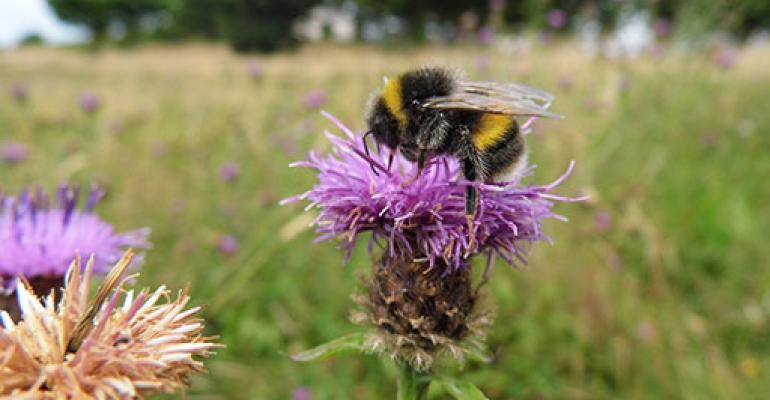Pesticides are in every area of the home and garden across our daily lives but there are ways to limit exposure, according to speakers at last week’s Oxford Real Farming Conference.
Farmers in the UK are tightly controlled and can legally use far fewer chemicals than those producing food overseas – but as we import such a large proportion of our food, those chemicals can end up in our bodies even if we’re not spraying them onto UK soils.
Maximum Residue Levels are a legal baseline which pesticide residues on food are prohibited from exceeding.
But as explained by Sarah Haynes, of the Pesticide Action Network (PAN UK), the way this is calculated takes into effect the risk from only one single pesticide – whereas in reality, we consume a ‘cocktail’ of mixed pesticides used on multiple foods . So a more accurate way of testing would be to replicate the combinations amounts and we might actually eat – a process verging on impossible to monitor scientifically.
Haynes also explained that the active chemical ingredient can even sometimes be heightened by the other elements used to create a pesticide.

Environmental journalist Anna Turns, shared results of research for her new book Go Toxic Free where tests revealed traces of now-banned chemicals and pesticides in her blood samples. She said the results showed how endemic and long-lasting chemicals are in everyday lives, and although doctors told her the results were not unusual, there are ways to try and reduce this exposure.
“From airborne chemical drift (crop spraying/herbicides) and use on non-organic food, to non-organic cotton in tampons, clothing or home textiles – all contain pesticide residues,” she said.
Chemicals used in pesticides have been shown to be linked with endocrine disruption in the body and a range of diseases including Parkinson’s, and some cancers like leukemia and non-Hodgkin’s lymphoma.
Chair of the session and editor of Wicked Leeks, Nina Pullman, pointed out that farmers often rely on chemicals to reduce the risk of losing entire crops to pest attacks. Farming is a low-margin business and needs change to come from supermarkets and government helping to create a food and farming sector that prioritizes low-chemical use, she said.
Affordability of organic food was also discussed, as the findings of the recent PAN UK ranking of supermarket action on pesticides found upmarket retailers like M&S and Waitrose were doing the most to tackle chemicals in the supply chain. Adding to the cost of organic food, this suggests that those on low incomes are most likely to be exposed to pesticides.
How to minimize exposure to pesticides and chemicals:
– Pesticides accumulate in house dust, so wipe down with a damp cloth
– Garden organically (see our monthly gardening advice column for where to start)
– Sign PAN UK’s petition to ban urban and garden pesticides
– Ask your council to go pesticide-free
– Buy less and better quality goods, and aim for organic food if you can
– Prioritize what food to buy organic, beginning with what you eat most of
– Second-hand clothes have less pesticide residues as fibers eventually shed them
– Choose organic cotton wherever possible
– Email the CEOs of the worst 10 supermarkets for pesticide action, via the PAN UK website

